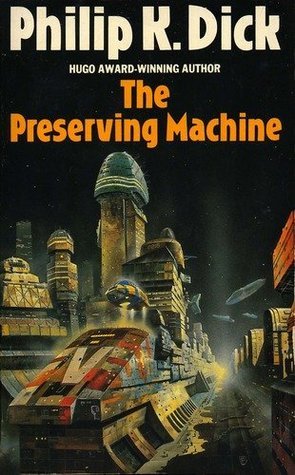
The Variable Man
Book Description
In a world where machines dominate and human life hinges on efficiency, a mechanic with the power to manipulate variables shatters the status quo. Caught in a deadly game between a war-torn future and powerful corporate interests, he faces relentless foes who see him as both a threat and a hopeful savior. Amid betrayal and unexpected alliances, he must navigate a web of intrigue where each choice could spell disaster. As tensions rise, the line between man and machine begins to blur. Can one unpredictable human change the course of reality, or will he be crushed by the very system he seeks to upend?
Quick Book Summary
"The Variable Man" by Philip K. Dick is a classic science fiction novella that explores the unpredictable power of human ingenuity in a future dominated by rigid systems and technology. Set in a war-torn distant future where Earth is embroiled in conflict with the Centaurian Empire, society places utmost trust in predictive machines and statistics to guide every action and decision. Enter Thomas Cole, a mechanic accidentally plucked from the early 20th century, whose natural repair skills and unpredictable mindset threaten the inflexible status quo. As Cole becomes a pawn and then a key player in a high-stakes game between corporate interests and governmental powers, his knack for solving problems in unexpected ways sparks hope and fear alike. The story raises questions about autonomy, the limits of technology, and the unquantifiable value of the human spirit.
Summary of Key Ideas
Table of Contents
The Limits of Predictive Technology
In the future, Earth and its ruling technocracy are locked in a desperate war with the powerful Centaurian Empire. Decision-making relies almost exclusively on sophisticated machines capable of calculating outcomes and strategizing with relentless efficiency. The aim is to develop the super-weapon Icarus, which, according to all predictions, will give humanity a decisive advantage—if the process remains perfectly controlled. Order and predictability have become values unto themselves, as even the smallest anomaly can throw off their delicate calculations, jeopardizing Earth’s chances.
Human Ingenuity Versus Machine Logic
Into this precise environment is thrown Thomas Cole, an early 20th-century handyman accidentally revived in the far future. Cole possesses extraordinary mechanical intuition but, more importantly, operates with a flexible, unpredictable mindset compared to machine-like citizens and leaders. To the authorities, Cole becomes the titular "variable man": the wild card whose nonlinear thinking threatens the machines’ ability to forecast and engineer desired outcomes. At first, Cole is merely a curiosity—an anomaly to be studied or eliminated—but his natural problem-solving skills soon draw the attention of all sides.
The Dangers of War and Escalation
Cole’s actions quickly undermine both the faith in technology and the war planners’ confidence. He navigates a shifting landscape of alliances and betrayals, sought after by those who want to use his talents to win the war and those who see the chaos he represents as intolerable. Through his enhancements and repairs on a failed super-weapon, Cole inadvertently alters the balance of power, rendering previous strategies and probabilities meaningless. The story highlights how rigid adherence to predictions can blind societies to creative solutions—solutions that only an unquantifiable human being can provide.
Individual Agency in a Systematic World
As government and corporate factions scramble to either co-opt or neutralize Cole, the novella explores the consequences of reliance on machines that cannot adapt to genuine unpredictability. Cole’s ingenuity throws a wrench in the calculations, but it also demonstrates the irreplaceable value of intuition, adaptability, and resourcefulness. Ultimately, it is this human capacity for creative problem-solving—precisely what the technocratic order fears—that proves decisive in the struggle.
Ethics of Manipulation and Control
In the end, “The Variable Man” challenges both characters and readers to acknowledge the inherent limitations of even the most advanced predictive technologies. True progress and survival, Dick suggests, depend not on eliminating all variables, but on embracing and integrating the unpredictable sparks of human insight. The novella serves as both a cautionary tale and a celebration of the persistent, disruptive potential of the human mind, raising enduring questions about autonomy, ethics, and the proper role of technology in society.
Download This Summary
Get a free PDF of this summary instantly — no email required.





